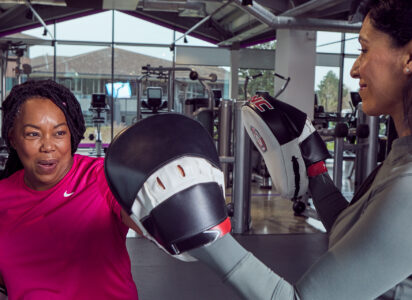We know that people may fast for religious holidays or as part of a specific diet routine. We hope that everything went well for those who have recently completed Ramadan and understand that most people are keen to get back into their usual routine, both inside and out of the gym. Fasting should not stop you from training altogether and at Anytime Fitness, our teams can support you with effective guidance on how best to train during this time. However, it is really important to be mindful of the transition phase during your first week of recovery and it is advised to take things step by step before commencing your usual training.Here we explain some of the key considerations before getting back into your training:
Hydration
First of all, hydration is one of the most important things. During Ramadan, you lose the reflex of drinking during the day, so your body and muscles are more likely to be dehydrated. To hydrate your body sufficiently again, it is advised to start drinking 1.5 to 2 litres per day, but with small quantities each time. This will help your body recover more and reduce the potential of injuries.
Build up the intensity
During the first week after fasting, you are still dehydrated and tired which can increase the risk of injuries. Instead of jumping straight back into your usual weight limit or number of reps, aim for simple recovery instead of performance. Reduce your weights to 50-60% of your maximum, do fewer repetitions and extend your rest time. Try to go for a long walk or a nice run to rehabilitate your body to move smoothly. Day by day, you can increase your weight until the end of the week where you are back to 100% of your abilities and are feeling stronger.
Aid recovery using supplements
When you have fasted, your body has fewer nutrients. Fasting for longer than 48 hours triggers autophagy and other metabolic pathways that can release micronutrients from your mineral stores. As such, it’s a good idea to assist your recovery with extra nutrients from a range of supplements such as protein shakes. Each individual is different, so please check with your Doctor or a fitness professional before you start taking anything.
Return to your usual diet
After your first week of full training, you will feel real progress. It’s important to return to a balanced diet adapted to the post-fasting period.It is a delicate balance as you may have a smaller appetite due to fasting, or the temptation may be to throw yourself into food. It is important to eat reasonably and at fixed times. Be mindful of eating enough protein, carbohydrates, and fat in each of your meals. Don’t forget to focus on fruits and vegetables which will help digestion.
As you can see, there is no quick fix to returning to your normal training routine, however, these simple steps will ensure you get back into things as smoothly as possible. The important thing is to be patient and allow your body time to recover.






